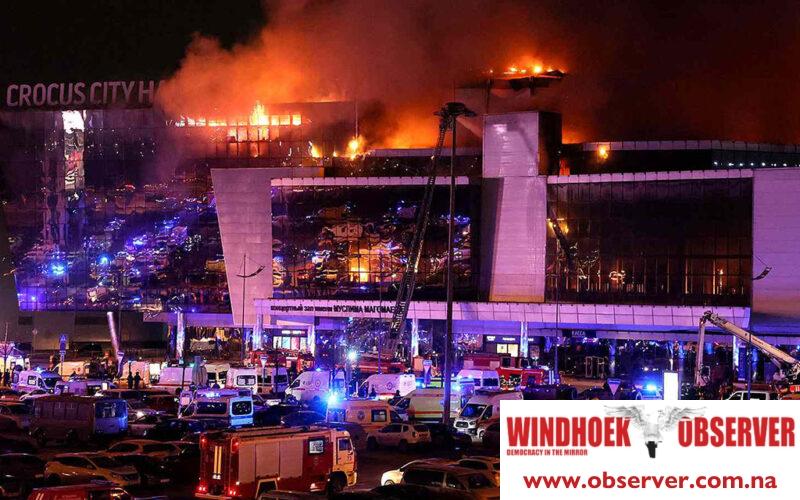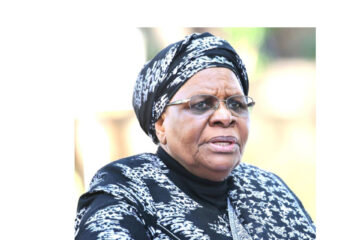Niël Terblanché
In the wake of Friday’s horrific terrorist attack at a concert hall in Moscow, which left at least 133 people dead and over 140 injured, international leaders, including Namibian President Nangolo Mbumba, have come forward to condemn the violence and extend their condolences to the victims and the people of Russia.
The brutal massacre, occurring at the packed Crocus City Hall during a performance by the veteran band Picnic, has been described as the deadliest attack in Russia for nearly two decades.
President Mbumba expressed his profound sympathies to Russian President Vladimir Putin, the bereaved families, and the people of Russia, emphasizing solidarity in this time of tragedy.
A personal letter from President Mbumba was also sent to President Putin emphasising Namibia’s stance against such senseless violence and its repercussions on innocent civilians.
The Namibian leader’s sentiments were echoed by other international figures, including South African President Cyril Ramaphosa, who announced plans to reach out to President Putin to discuss the attack among other matters.
The global community’s unified voice reflects a strong condemnation of terrorism and a call for peace and security worldwide.
Russian authorities confirmed the arrest of all four gunmen responsible for the attack, which began with indiscriminate firing and culminated in setting the venue ablaze.
President Putin, in a televised address, vehemently condemned the massacre, labelling it a “barbaric terrorist act.”
The Kremlin’s suggestion that the attackers had attempted to flee to Ukraine was met with scepticism and denial by Kyiv, with Ukrainian President Volodymyr Zelensky accusing Putin of unfairly attributing blame to Ukraine.
The incident has spurred a wave of international support for Russia, with countries and leaders around the world denouncing the attack.
The White House condemned the assault as “heinous” and highlighted the need to combat the threat posed by IS, which it identified as a “common terrorist enemy.”




